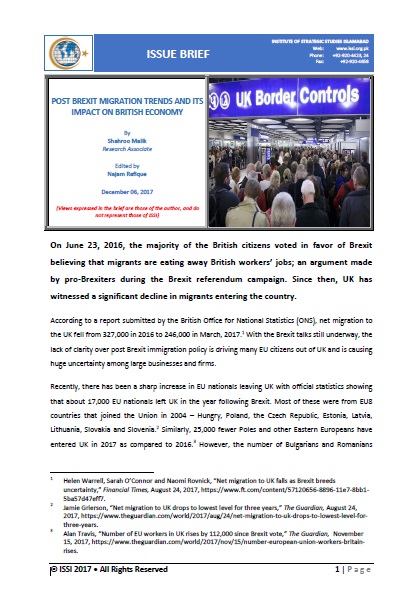On June 23, 2016, the majority of the British citizens voted in favor of Brexit believing that migrants are eating away British workers’ jobs; an argument made by pro-Brexiters during the Brexit referendum campaign. Since then, UK has witnessed a significant decline in migrants entering the country.
According to a report submitted by the British Office for National Statistics (ONS), net migration to the UK fell from 327,000 in 2016 to 246,000 in March, 2017.[1] With the Brexit talks still underway, the lack of clarity over post Brexit immigration policy is driving many EU citizens out of UK and is causing huge uncertainty among large businesses and firms.
Recently, there has been a sharp increase in EU nationals leaving UK with official statistics showing that about 17,000 EU nationals left UK in the year following Brexit. Most of these were from EU8 countries that joined the Union in 2004 – Hungry, Poland, the Czech Republic, Estonia, Latvia, Lithuania, Slovakia and Slovenia.[2] Similarly, 25,000 fewer Poles and other Eastern Europeans have entered UK in 2017 as compared to 2016.[3] However, the number of Bulgarians and Romanians working in UK has increased from 257,000 in 2016 to 347,000 in 2017.[4] PwC, a consulting giant, recently released its UK Economic Outlook in which it forecasted that a 50% fall in EU migration in the future can reduce UK’s GDP by around 1.1% (£22 billion) in 2030.[5] Similarly, many leading economists are of the opinion that migrants pay far more in tax than they claim in benefits by contributing about £7 billion annually.[6]















